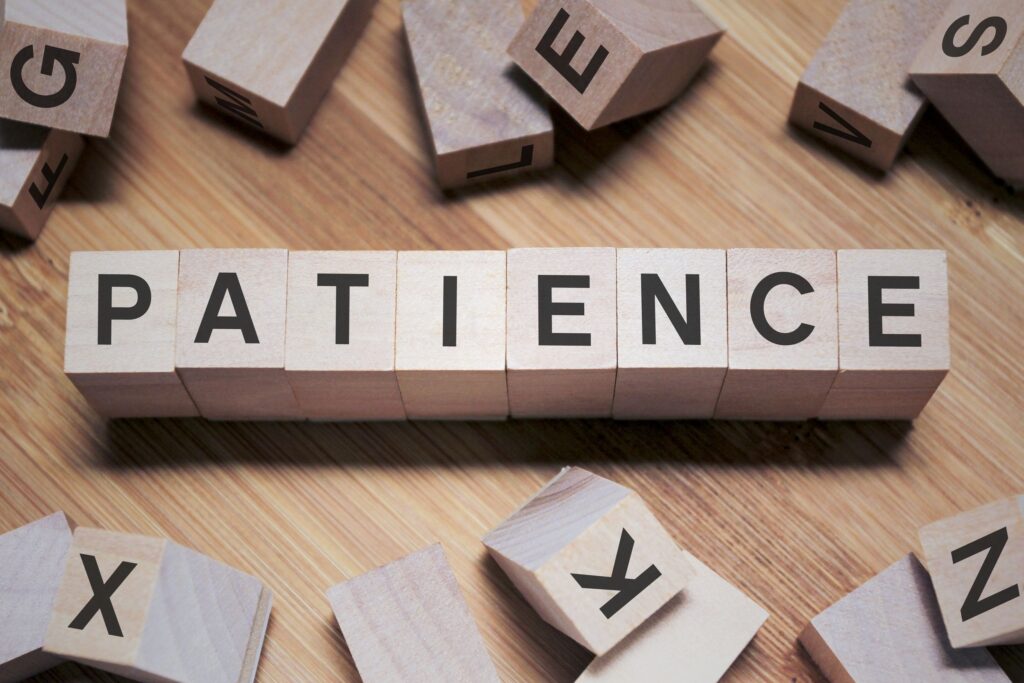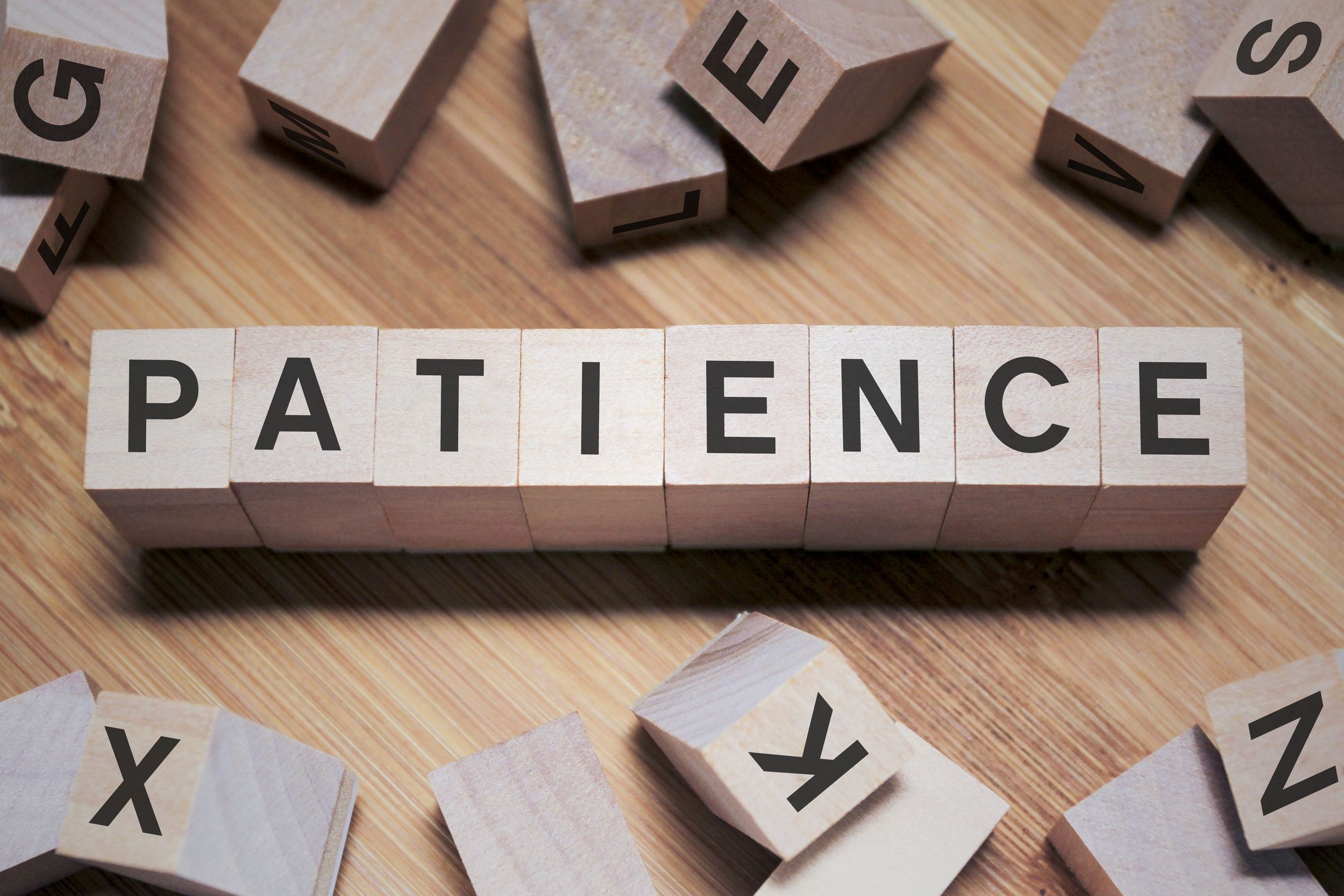
I Have Patience: Unlocking Success Through Perseverance and Calm
In today’s fast-paced world, the virtue of patience often feels like a relic of the past. We are bombarded with instant gratification, immediate results, and constant connectivity. However, the ability to say “I have patience” is more critical than ever for achieving long-term success, building strong relationships, and maintaining inner peace. This article explores the profound benefits of cultivating patience, offering practical strategies for developing this essential trait, and illustrating its impact through compelling real-world examples. Embracing patience is not merely about waiting; it’s about strategically investing in a future where your goals are achieved through sustained effort and unwavering commitment. It’s a declaration that, despite the challenges, “I have patience” to see things through.
The Power of Patience: Why It Matters
Patience is often misunderstood as passive resignation. In reality, it’s a powerful, active force that enables us to navigate challenges, make better decisions, and achieve our goals with greater effectiveness. Here’s why patience is so vital:
- Improved Decision-Making: When we’re patient, we’re less likely to make rash decisions driven by emotion or immediate pressure. Instead, we can take the time to carefully consider our options and make choices that align with our long-term objectives.
- Stronger Relationships: Patience is the cornerstone of healthy relationships. It allows us to listen attentively, empathize with others, and respond with understanding rather than frustration. This fosters trust and strengthens bonds.
- Enhanced Problem-Solving: Complex problems often require time, persistence, and a willingness to iterate. Patience allows us to approach challenges with a calm and focused mindset, increasing our chances of finding creative solutions.
- Reduced Stress and Anxiety: Impatience can lead to feelings of frustration, anger, and anxiety. By cultivating patience, we can reduce stress levels and improve our overall well-being. Knowing and believing “I have patience” makes a difference.
- Increased Resilience: Patience helps us bounce back from setbacks and failures. When we understand that progress takes time, we’re less likely to be discouraged by obstacles and more likely to persevere.
Cultivating Patience: Practical Strategies
Developing patience is an ongoing process that requires self-awareness, commitment, and consistent effort. Here are some practical strategies to help you cultivate this valuable trait:
Practice Mindfulness
Mindfulness involves paying attention to the present moment without judgment. By focusing on your breath, your senses, and your thoughts, you can become more aware of your reactions to stressful situations and learn to respond with greater calm. Mindfulness meditation, even for just a few minutes each day, can significantly improve your ability to “I have patience” in challenging circumstances.
Reframe Your Perspective
Often, impatience stems from unrealistic expectations or a limited perspective. Try reframing your perspective by considering the bigger picture, recognizing that setbacks are a normal part of life, and focusing on what you can control. Ask yourself, “What can I learn from this situation?” or “How can I use this experience to grow?”
Set Realistic Goals
Unrealistic goals can lead to frustration and impatience. Break down large goals into smaller, more manageable steps, and celebrate your progress along the way. This helps you stay motivated and maintain a sense of accomplishment, even when facing challenges. When you set goals, ensure that you can honestly say, “I have patience” to see them through, however long it takes.
Practice Active Listening
Active listening involves fully focusing on what the other person is saying, without interrupting or formulating your response. This not only strengthens your relationships but also helps you develop empathy and understanding. By truly listening, you can avoid misunderstandings and respond with greater patience and compassion. Truly hearing someone requires you to believe “I have patience” to listen to their story.
Embrace the Process
Focus on the journey rather than solely on the outcome. Enjoy the process of learning, growing, and overcoming challenges. This shift in mindset can make the experience more rewarding and less frustrating. Remember, the journey is just as important as the destination. Remind yourself, “I have patience” to enjoy the process.
Identify Your Triggers
What situations or people tend to trigger your impatience? Once you identify your triggers, you can develop strategies for managing your reactions. This might involve taking a break, practicing deep breathing, or simply reminding yourself to stay calm. Being aware of what tests your “I have patience” is key to strengthening it.
Practice Gratitude
Focusing on what you’re grateful for can help shift your perspective and reduce feelings of frustration and impatience. Take time each day to reflect on the positive aspects of your life, and express gratitude for the people and experiences that enrich your life. If you are truly grateful, you will believe “I have patience” for what you have.
Accept What You Cannot Control
Many situations are beyond our control. Learning to accept this reality can significantly reduce stress and impatience. Focus your energy on what you can influence, and let go of the rest. This doesn’t mean giving up; it means focusing your efforts where they will have the greatest impact. Accepting this will help you believe “I have patience” for things outside your control.
The Impact of Patience: Real-World Examples
The benefits of patience are evident in various aspects of life, from personal relationships to professional success. Here are a few real-world examples:
The Entrepreneur’s Journey
Starting a business is a marathon, not a sprint. Successful entrepreneurs understand the importance of patience, persistence, and resilience. They are prepared to face setbacks, learn from their mistakes, and adapt to changing market conditions. They know that building a successful business takes time, effort, and unwavering commitment. [See also: Building a Resilient Business Model] They believe “I have patience” to see their vision come to fruition.
The Artist’s Dedication
Creating art, whether it’s painting, writing, or music, requires patience and dedication. Artists often spend countless hours honing their craft, experimenting with different techniques, and refining their vision. They understand that mastery takes time and that setbacks are a natural part of the creative process. They believe “I have patience” to create something truly meaningful.
The Parent’s Love
Raising children is one of the most challenging and rewarding experiences in life. Parents need to be patient, understanding, and supportive, especially during difficult times. They must be willing to listen, offer guidance, and provide unconditional love. They understand that children grow and develop at their own pace and that patience is essential for fostering healthy relationships. [See also: Positive Parenting Strategies] They believe “I have patience” to nurture their children’s growth.
The Investor’s Strategy
Successful investing requires patience and discipline. Investors need to resist the temptation to make impulsive decisions based on short-term market fluctuations. Instead, they should focus on long-term growth, diversify their portfolios, and stay informed about market trends. They understand that patience is key to achieving financial success. [See also: Long-Term Investment Strategies] They believe “I have patience” to see their investments grow.
The Language of Patience: Beyond “I Have Patience”
While the phrase “I have patience” is a powerful declaration, the language of patience extends beyond these three words. It encompasses a mindset of understanding, empathy, and resilience. It’s about speaking with kindness, listening with intent, and responding with compassion. It’s about choosing your words carefully and avoiding language that can escalate conflict or create misunderstandings. It’s about communicating your needs and expectations clearly and respectfully. By embracing the language of patience, you can foster stronger relationships, improve communication, and create a more harmonious environment.
Patience in a World of Instant Gratification
In a world that increasingly demands instant results, cultivating patience can feel like an uphill battle. Social media, online shopping, and on-demand entertainment have conditioned us to expect immediate gratification. However, resisting this temptation and embracing patience is more important than ever. By delaying gratification, we can develop greater self-control, appreciate the value of hard work, and achieve more meaningful results. Saying “I have patience” is a conscious choice to prioritize long-term success over short-term pleasure.
Conclusion: Embracing the Power of “I Have Patience”
Patience is not a passive virtue; it’s an active force that can transform your life. By cultivating patience, you can make better decisions, build stronger relationships, reduce stress, and achieve your goals with greater effectiveness. The ability to say “I have patience” is a declaration of your commitment to perseverance, resilience, and long-term success. Embrace the power of patience, and unlock your full potential. In a world demanding instant results, choosing to believe “I have patience” is the key to success.

